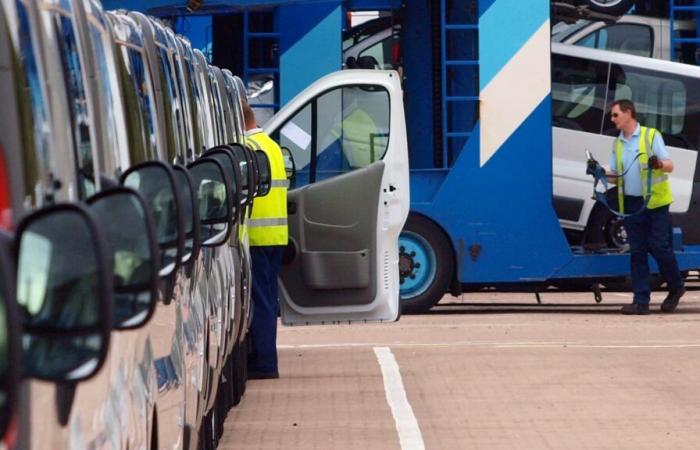The car manufacturer Stellantis announced on Tuesday its intention to close its Luton factory, to concentrate its production on another site in the United Kingdom, which could lead to the loss of hundreds of jobs.
The crisis in the automotive sector continues in Europe. Stellantis announced on Tuesday that it wanted to close its factory in Luton, north of London in Great Britain. The production of utilities carried out on site would be repatriated to another English site, Ellesmere Port, 300 kilometers away.
Several hundred employees affected
More than 1,100 people currently work full-time in Luton, according to the company. Some could be redeployed to this other site in the north of England, “where hundreds of permanent jobs will be created”, it is stated in a press release from Stellantis, which has already launched a consultation with employees and unions.
As well as relocating some roles, the company is also promising “comprehensive dedicated employment support, including reskilling opportunities, for all affected employees” in “the busy Luton area”.
This reorganization, which involves an investment of 50 million pounds (60 million euros), aims to “strengthen the Ellesmere Port factory”. Stellantis emphasizes having invested 100 million pounds (120 million euros) there in 2021 to make it its first site manufacturing exclusively electric commercial vehicles.
Small light utility vehicles are produced there, such as the Citroën ë-Berlingo, the Opel Combo Electric or the Peugeot E-Partner.
Delays around the electric vehicle
British car manufacturers have been worried for months about the promise of the Labor Party, elected in July, to bring forward by five years the ban on the sale of new cars running only on petrol and diesel, in the face of demand of electric cars which they consider insufficient. Stellantis even threatened in June to simply stop its production in the United Kingdom due to lack of sufficient support from the authorities for electricity.
The previous Conservative government had in fact postponed last year the ban on the sale of new cars running on petrol and diesel in the United Kingdom to 2035, against the previously set target of 2030 and the Labor Party wants to reverse steam.
The executive repeated last week that it wanted to “reestablish the gradual elimination, by 2030, of cars powered solely by internal combustion engines”, following a round table with the sector, also recalling that he plans to invest “2 billion pounds (2.4 billion euros) to help the British automotive industry make this transition”.







